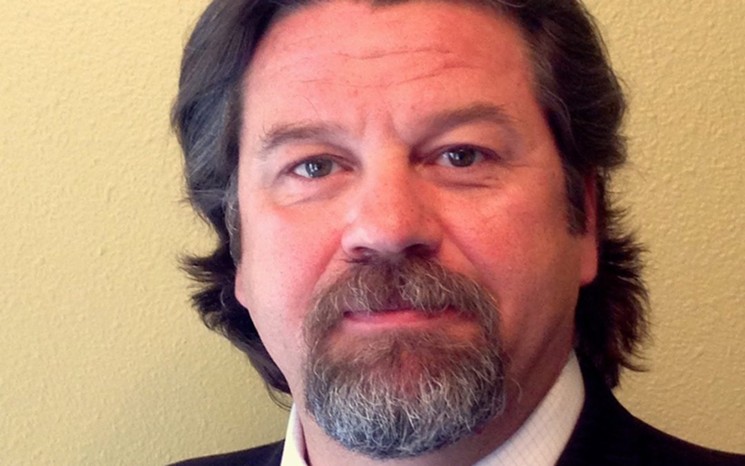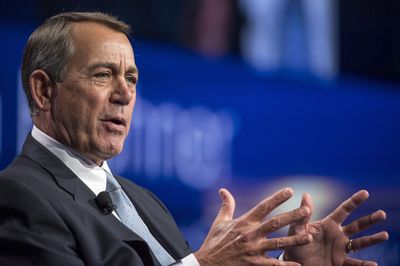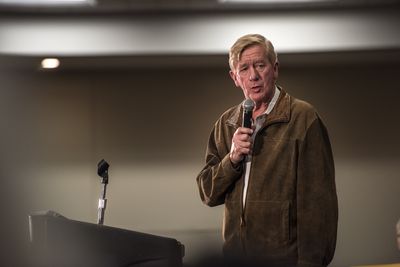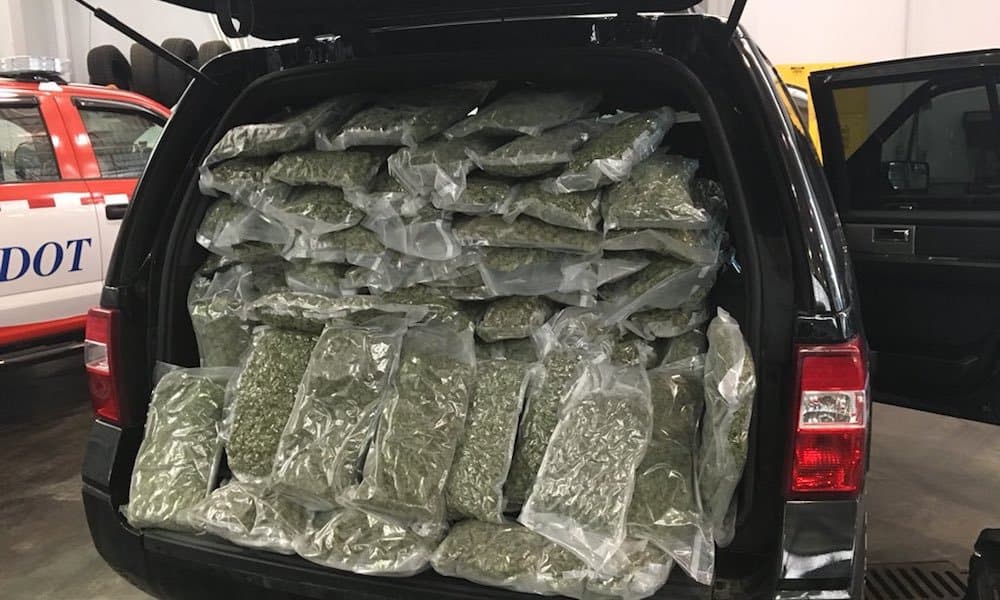Baron23
Well-Known Member
I think that Dodie's name was misspelled...its Dodo!
Lawmaker Cites Satirical Article To Argue Against Legalizing Cannabis
In Louisiana, a lawmaker cites satirical article to argue against legalizing cannabis. Yes, we are in fact serious

There’s been a lot of discussion about medical marijuana in the Louisiana legislature this year, and not everyone involved is as informed as they should be. Thursday, the reports rolled in: a lawmaker cites satirical article to argue against legalizing cannabis for people with post-traumatic stress disorder, intractable pain, severe muscle spasms and glaucoma.
Medical Marijuana Legislation Up For Debate In Louisiana House of Representatives
House Bill 579 would extend the list of conditions that merit medical marijuana access. Currently, anyone suffering from post-traumatic stress disorder, intractable pain, severe muscle spasms and glaucoma is not eligible for medical marijuana. This legislation went to committee today, where lawmakers voted in its favor 8 to 4. Next, the Louisiana House of Representatives will consider the bill.
This isn’t the only change Louisiana lawmakers are hoping to implement in marijuana legislation. Last month, lawmakers voted on to give autistic children access to medical marijuana.
Arguing Against This Legislation, This Representative Quotes Satire
Representative. Dodie Horton does not support increasing access to medical marijuana, despite petitions from parents. To argue against passing this legislation, Republican Dodie Horton mentioned an article that originally appeared in the Daily Currant. The article jokes about the deadly consequences of legalization in Colorado.
It reads, “Colorado is reconsidering its decision to legalise recreational pot following the deaths of dozens due to marijuana overdoses.”
The article goes so far as to quote a fictional doctor: ” ‘It’s complete chaos here,’ says Dr. Jack Shepard, chief of surgery at St. Luke’s Medical Center in Denver, ‘I’ve put five college students in body bags since breakfast and more are arriving every minute.’ ”
Before the committee voted on House Bill 579, Rep. Horton quoted this alarming fake news about legalization. Later, on Twitter, reporter Elizabeth Crisp accused her of quoting satire.

After this exchange, Horton blocked the reporter’s account.
In the committee meeting, bill sponsor Rep. Ted James brought up Rep. Horton’s ill-founded argument against medical marijuana. Though Horton admitted that the evidence was fake, she refused to correct the public record according to The Advocate.
There Is A Lot of Misinformation About Marijuana In Politics
As this lawmaker cites satirical article to argue against legalizing cannabis, it calls attention to a pattern of politicians misinforming the public about marijuana. With Rep. Horton, her poor knowledge of legalization appears to come from ignorance. This is common with even democratic politicians like New York Governor Cuomo who has publicly stated that marijuana is a gateway drug.
However, other politicians are not so innocent. In 2010, California’s Proposition 19 did not pass largely due to the effects of the liquor lobby. According to Wikileaks, Wine & Spirits Wholesalers of America donated to political forces opposing recreational marijuana.
Final Hit: Lawmaker Cites Satirical Article To Argue Against Legalizing Cannabis
Though it’s alarming that someone with a prominent voice in legalization would be so ill-informed, we can rest assured that this medical marijuana legislation will be heard on the House floor. It does, however, suggest the number of occasions when lawmakers disparaged marijuana without being called out by politicians and reporters alike.
Lawmaker Cites Satirical Article To Argue Against Legalizing Cannabis
In Louisiana, a lawmaker cites satirical article to argue against legalizing cannabis. Yes, we are in fact serious

There’s been a lot of discussion about medical marijuana in the Louisiana legislature this year, and not everyone involved is as informed as they should be. Thursday, the reports rolled in: a lawmaker cites satirical article to argue against legalizing cannabis for people with post-traumatic stress disorder, intractable pain, severe muscle spasms and glaucoma.
Medical Marijuana Legislation Up For Debate In Louisiana House of Representatives
House Bill 579 would extend the list of conditions that merit medical marijuana access. Currently, anyone suffering from post-traumatic stress disorder, intractable pain, severe muscle spasms and glaucoma is not eligible for medical marijuana. This legislation went to committee today, where lawmakers voted in its favor 8 to 4. Next, the Louisiana House of Representatives will consider the bill.
This isn’t the only change Louisiana lawmakers are hoping to implement in marijuana legislation. Last month, lawmakers voted on to give autistic children access to medical marijuana.
Arguing Against This Legislation, This Representative Quotes Satire
Representative. Dodie Horton does not support increasing access to medical marijuana, despite petitions from parents. To argue against passing this legislation, Republican Dodie Horton mentioned an article that originally appeared in the Daily Currant. The article jokes about the deadly consequences of legalization in Colorado.
It reads, “Colorado is reconsidering its decision to legalise recreational pot following the deaths of dozens due to marijuana overdoses.”
The article goes so far as to quote a fictional doctor: ” ‘It’s complete chaos here,’ says Dr. Jack Shepard, chief of surgery at St. Luke’s Medical Center in Denver, ‘I’ve put five college students in body bags since breakfast and more are arriving every minute.’ ”
Before the committee voted on House Bill 579, Rep. Horton quoted this alarming fake news about legalization. Later, on Twitter, reporter Elizabeth Crisp accused her of quoting satire.
After this exchange, Horton blocked the reporter’s account.
In the committee meeting, bill sponsor Rep. Ted James brought up Rep. Horton’s ill-founded argument against medical marijuana. Though Horton admitted that the evidence was fake, she refused to correct the public record according to The Advocate.
There Is A Lot of Misinformation About Marijuana In Politics
As this lawmaker cites satirical article to argue against legalizing cannabis, it calls attention to a pattern of politicians misinforming the public about marijuana. With Rep. Horton, her poor knowledge of legalization appears to come from ignorance. This is common with even democratic politicians like New York Governor Cuomo who has publicly stated that marijuana is a gateway drug.
However, other politicians are not so innocent. In 2010, California’s Proposition 19 did not pass largely due to the effects of the liquor lobby. According to Wikileaks, Wine & Spirits Wholesalers of America donated to political forces opposing recreational marijuana.
Final Hit: Lawmaker Cites Satirical Article To Argue Against Legalizing Cannabis
Though it’s alarming that someone with a prominent voice in legalization would be so ill-informed, we can rest assured that this medical marijuana legislation will be heard on the House floor. It does, however, suggest the number of occasions when lawmakers disparaged marijuana without being called out by politicians and reporters alike.






